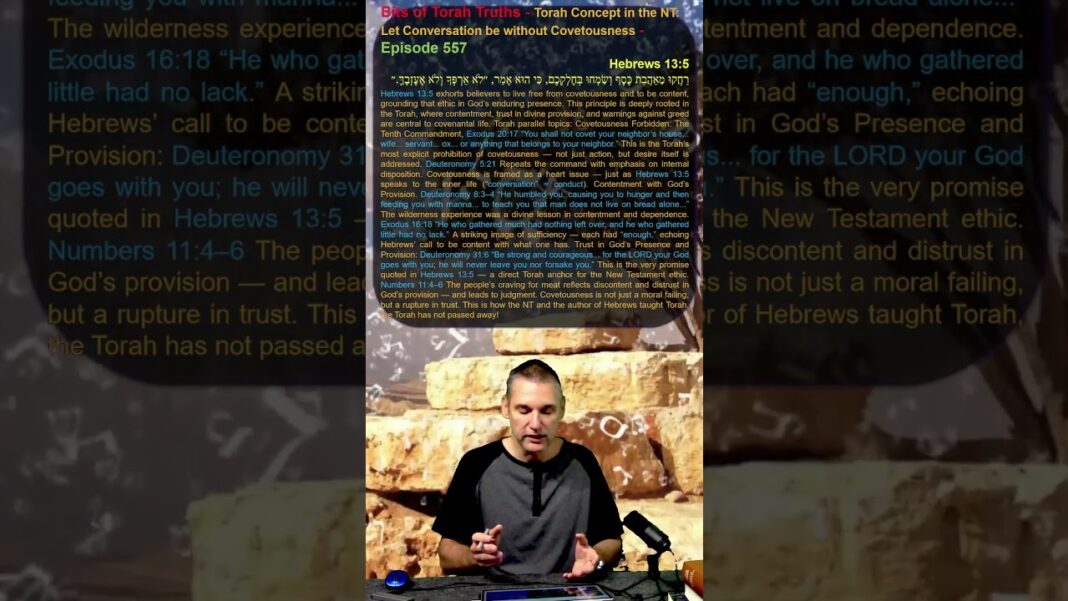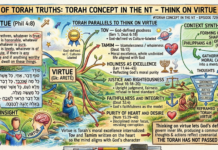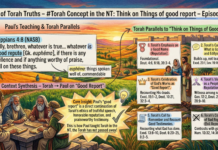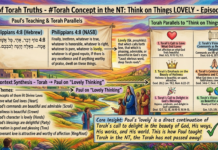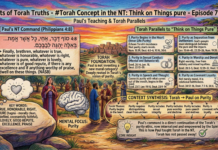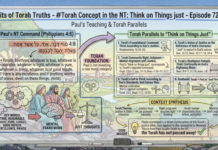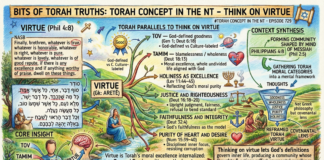Bits of Torah Truths – Torah Concept in the NT: Let Conversation be without Covetousness – Episode 557
Hebrews 13:5
רַחֲקוּ מֵאַהֲבַת כֶּסֶף וְשִׂמְחוּ בְּחֶלְקְכֶם, כִּי הוּא אָמַר, ״לֹא אַרְפְּךָ וְלֹא אֶעֶזְבֶךָּ.״
#torah #torahwisdom #torahtruth #torahforlife #torah4you #torahtruth
Hebrews 13:5
13:5 Make sure that your character is free from the love of money, being content with what you have; for He Himself has said, “I WILL NEVER DESERT YOU, NOR WILL I EVER FORSAKE YOU,” (NASB)
https://www.matsati.com/index.php/category/bits-of-torah-truths/
Hebrews 13:5 exhorts believers to live free from covetousness and to be content, grounding that ethic in God’s enduring presence. This principle is deeply rooted in the Torah, where contentment, trust in divine provision, and warnings against greed are central to covenantal life. Torah parallel topics: Covetousness Forbidden: The Tenth Commandment, Exodus 20:17 “You shall not covet your neighbor’s house… wife… servant… ox… or anything that belongs to your neighbor.” This is the Torah’s most explicit prohibition of covetousness — not just action but desire itself is addressed. Deuteronomy 5:21 Repeats the command with emphasis on internal disposition. Covetousness is framed as a heart issue — just as Hebrews 13:5 speaks to the inner life (“conversation” = conduct). Contentment with God’s Provision. Deuteronomy 8:3–4 “He humbled you, causing you to hunger and then feeding you with manna… to teach you that man does not live on bread alone…” The wilderness experience was a divine lesson in contentment and dependence. Exodus 16:18 “He who gathered much had nothing left over, and he who gathered little had no lack.” A striking image of sufficiency — each had “enough,” echoing Hebrews’ call to be content with what one has. Trust in God’s Presence and Provision: Deuteronomy 31:6 “Be strong and courageous… for the LORD your God goes with you; he will never leave you nor forsake you.” This is the very promise quoted in Hebrews 13:5 — a direct Torah anchor for the New Testament ethic. Numbers 11:4–6 The people’s craving for meat reflects discontent and distrust in God’s provision — and leads to judgment. Covetousness is not just a moral failing, but a rupture in trust. This is how the NT and the author of Hebrews taught Torah; the Torah has not passed away!
